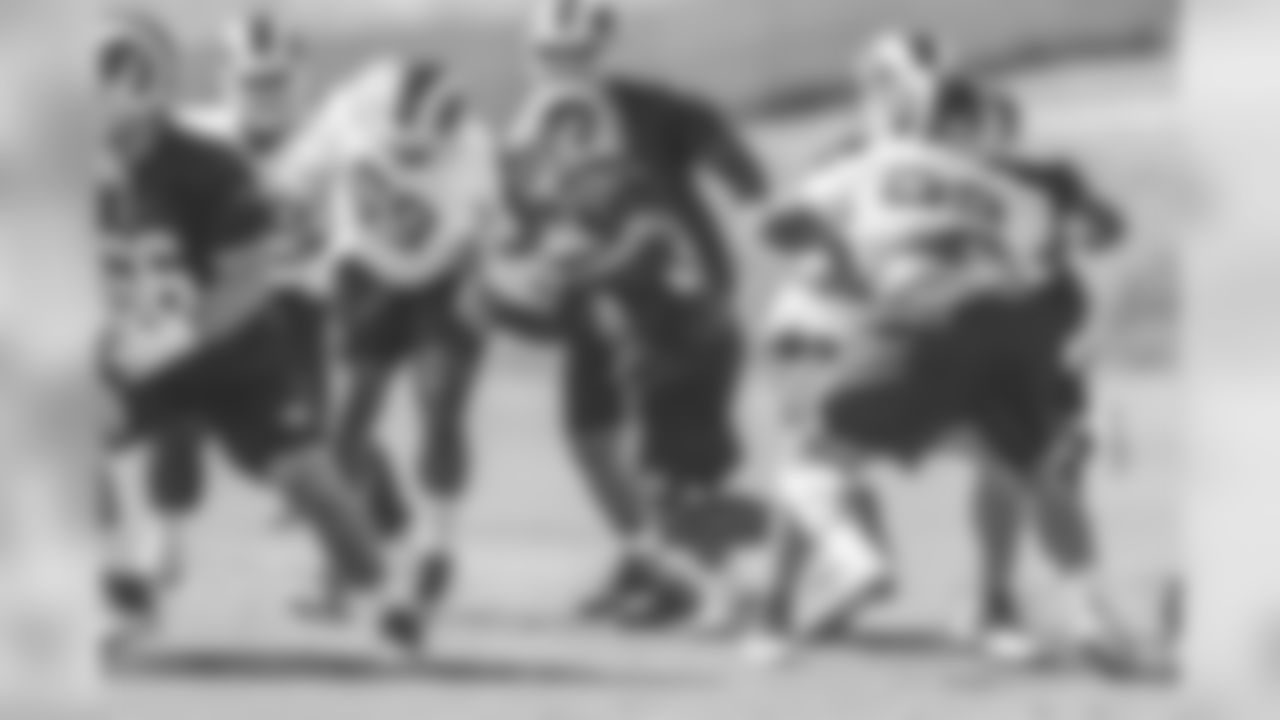The Rams won their Week 1 contest 33-13, with the offense contributing 16 unanswered points in the second half before cornerback Marcus Peters provided the final seven with his interception returned for a touchdown.
That is to say, any criticism of Los Angeles' offense — which was clearly effective against Oakland — should be viewed through that lens.
But looking at the individual offensive statistics portion of the box score, two intriguing elements stand out.

First — aside from Jared Goff taking a minus-one-yard knee to end the first half — there were five skill players listed and each of them took at least one carry and had at least two receptions: running backs Todd Gurley and Malcolm Brown, along with wide receivers Brandin Cooks, Cooper Kupp, and Robert Woods.
But those were the only skill players who received a touch — which means the box score doesn't list one tight end.
That's in spite of the fact that starting tight end Tyler Higbee played 90 percent of snaps in the Week 1 matchup, and Los Angeles was in 11 personnel (one running back, one tight end, three wide receivers) for the vast majority of its offensive plays. Woods, Cooks, and Kupp each played 97 percent of Los Angeles' snaps — coming off the field for just two snaps each. And Higbee was off the field for just three.
So, what happened? Why didn't Higbee — or Gerald Everett and Johnny Mundt, for that matter — receive a target?
Check out some of the best shots from practice leading up to the Rams' matchup against the Arizona Cardinals.


































































































































"Well, I think a large part of that was, fortunately with the exception of being in the red zone, we avoided a lot of those tougher third-down situations," head coach Sean McVay said on Thursday. "So, a lot of our first- and second-down passes were exclusively where you're kind of the play action, some of the boots, different things like that, some of your screens where they're more in the protection mindset than anything else."
"I don't think we go into a week saying we don't want to target somebody or don't want to get the ball to somebody," quarterback Jared Goff said. "I think it's just the way the game worked out, the way the flow was going, the way we were calling plays, just the way we just wanted to do things worked out that way. There were plays that the tight end was an option that just didn't get the ball just based on the coverage, or the look, or whatever it was."
It's not the first time Higbee has been shut out in terms of receptions and targets, as the same happened last year against Philadelphia — albeit with a different ultimate result as Los Angeles lost that game. And Higbee averaged only 1.6 receptions per game last season — his first as a full-time starter.
Still, Higbee said he's fine with the way Monday night went down.
"You'd like to have them [targets and receptions], but just want to get the 'W' in the end — whatever makes the offense work, the team work, whatever it is," Higbee said. "It might not be last game, it might not be this game. Whenever they call my number, it's time to go."
And Higbee is still heavily involved in the offense, given how much he's utilized as an in-line blocker at tight end.
But McVay and Goff seemed to have discussed the lack of tight end targets, since they both said essentially the same thing during their separate press conferences.
"That's definitely not something that we want to make a habit of," McVay said.
"I don't think we want to make a habit out of that by any means," Goff said.
That's part of McVay's offensive philosophy — making sure the defense must account for every person eligible to receive a pass on any given play. And because of that, Higbee knows he'll see plenty of opportunities to make plays over the course of the rest of the season.
"We've got some weapons in this offense — great players," Higbee said. "Both on the outside at receiver, and in the tight ends room, and in the backfield — the offense player of the year.
"So, yeah, everybody's going to eat. And when the time comes, it's time to do it."






